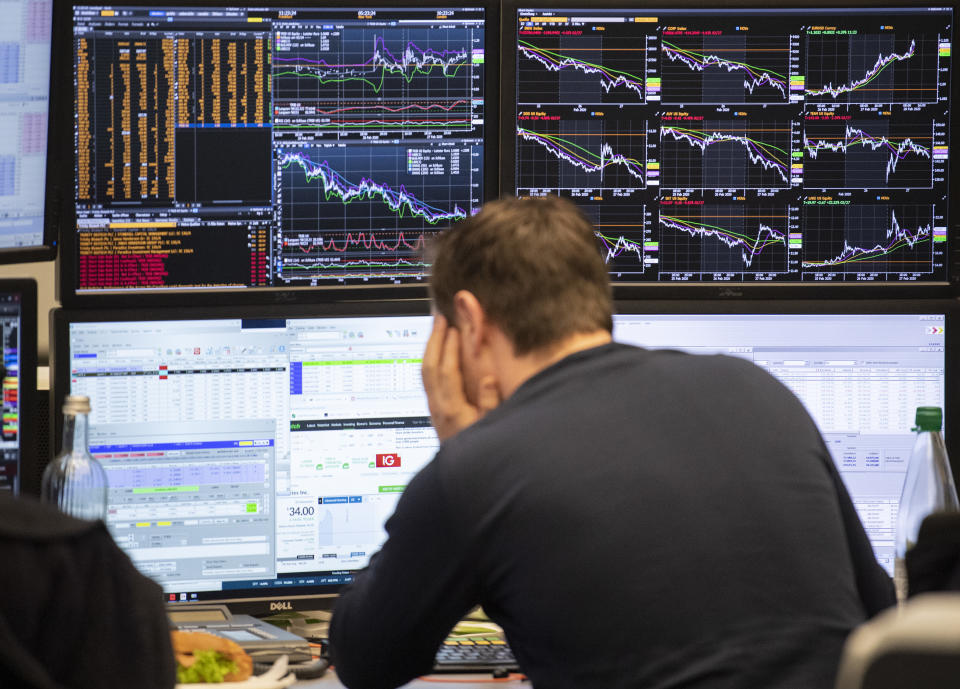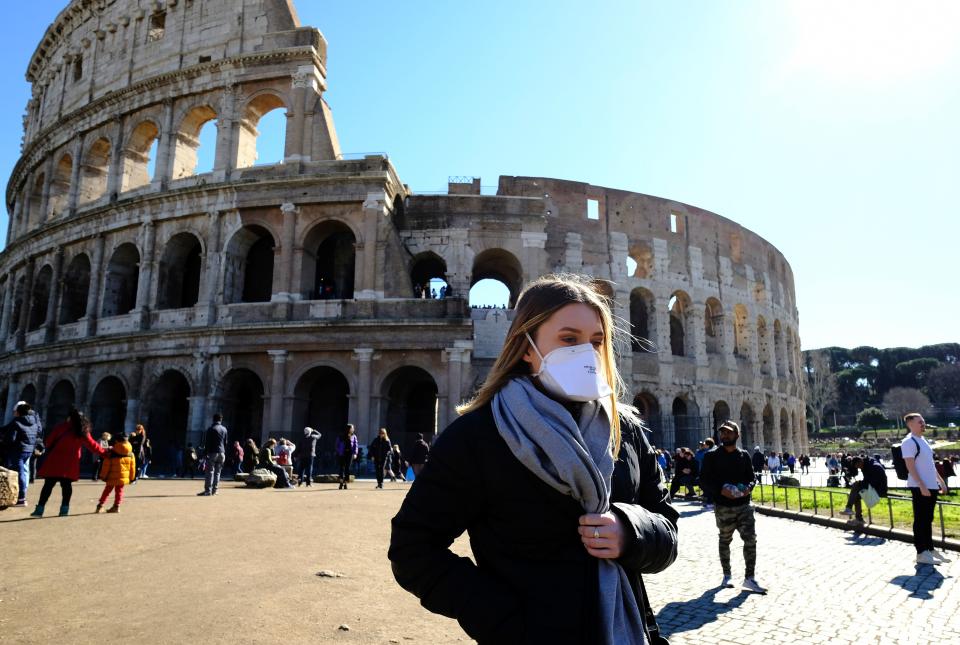Coronavirus 'panic' as oil dives, stocks lose $6tn, and 'fear' spikes

Everywhere you look in the world of high finance, warning signs are flashing bright red:
$6tn has been wiped off global stock markets over the last 6 trading days.
The S&P 500 (^GSPC) has experienced its fastest correction — a decline of 10% from recent highs — in over 70 years.
By Thursday night, the S&P 500 and Dow Jones Industrial Average (^DJI) were both on their worst four-day runs since 2008.
Thursday was the worst day in stock markets since the financial crisis.
Oil (BZ=F) has fallen to $50-a-barrel and is on track for its worst week since January 2016.
The VIX (^VIX) — the options index dubbed the ‘fear’ index — touched its highest point since 2011 on Friday. The index measures traders expectations of stock price volatility and was up 44%.
“Panic is pervading and creating a selling crescendo,” analysts on Jefferies global asset allocation team wrote in a note to clients on Friday.
The market panic, which continued on Friday, has been caused by the spread of novel coronavirus, known as COVID-19. Until this week, investors believed the outbreak in Asia would dent China’s first quarter GDP growth but quickly rebound.
However, a major outbreak was recorded in Italy last weekend and cases have since been recorded in most other major European nations. The US also announced its first COVID-19 patient this week and now has 60 confirmed cases.
Read more: Stocks fall again amid warnings of coronavirus’ ‘pandemic potential’
“Markets seem to be taking the view that authorities face an impossible trade-off,” Ralph Preusser, global head of rates at Bank of America, wrote in a note on Friday.
“Adopt the Draconian quarantine measures seen in China and trigger a global recession as worldwide economic activity grinds to a halt [or] risk a pandemic by failing to take more aggressive action on Covid-19, also resulting in a global recession.”
Preusser said these outlook was “extreme” but said “we cannot rule out recession risks”.

Bank of America on Thursday downgraded its global growth forecast for this year to 2.8%, which would be the lowest growth since 2009. Jefferies said Friday the slump in tourism could trigger mini-recessions in New Zealand, Italy, and Thailand.
Uncertainty, about just how far the virus will spread and how serious its effects could be have sparked a wave of selling.
“The latest down-leg in equities was more indiscriminate, and saw broader styles, sectors and stocks participation,” said Emmanuel Cau, head of European equity strategy at Barclays.
Investors have dumped anything remotely risky in favour of assets seen as safe. Gold (GC=F) hit a new record high earlier this week, the yield on US 10-year Treasury notes fell to a new record low, and the utility sector is the only segment of the Euro STOXX 600 (^STOXX) still clinging on to year-to-date gains.
Read more: Europe’s economy braces for coronavirus hit as market panic grips
The steepness of declines is partly down to the fact investors can’t see a clear way out.
“Over the last two or three years at least, the circuit breaker to risk off moments have usually been a Donald Trump tweet or a central bank u-turn,” wrote Deutsche Bank strategist Jim Reid. “There is very little the former can do to control the global spread of the virus though and little central banks can do either.”
Some brave souls are urging clients to go knife-catching. UBS told clients there could be bargains about, given the indiscriminate nature of the sell-off.
But Goldman Sachs’s global markets team wrote on Friday: “While 'buy the dip' has been a successful strategy since the Global Financial Crisis, with equity drawdowns often reversing quickly, it might be more risky this time.
“With global growth still weak, the shock from the coronavirus outbreak lingering and less scope for monetary and fiscal easing, the risk of a more prolonged drawdown remains.”
Watch the latest videos from Yahoo Finance UK

 Yahoo Finance
Yahoo Finance 